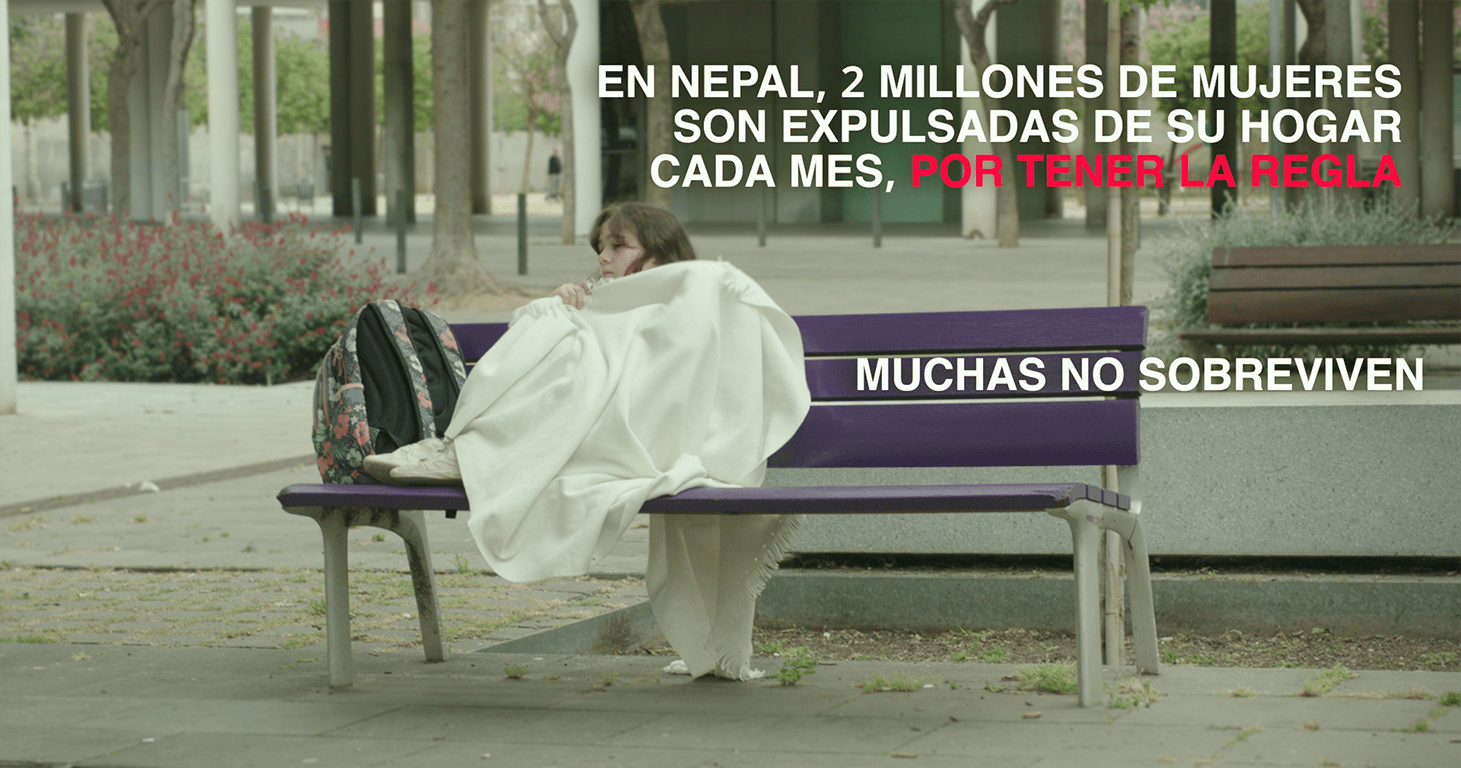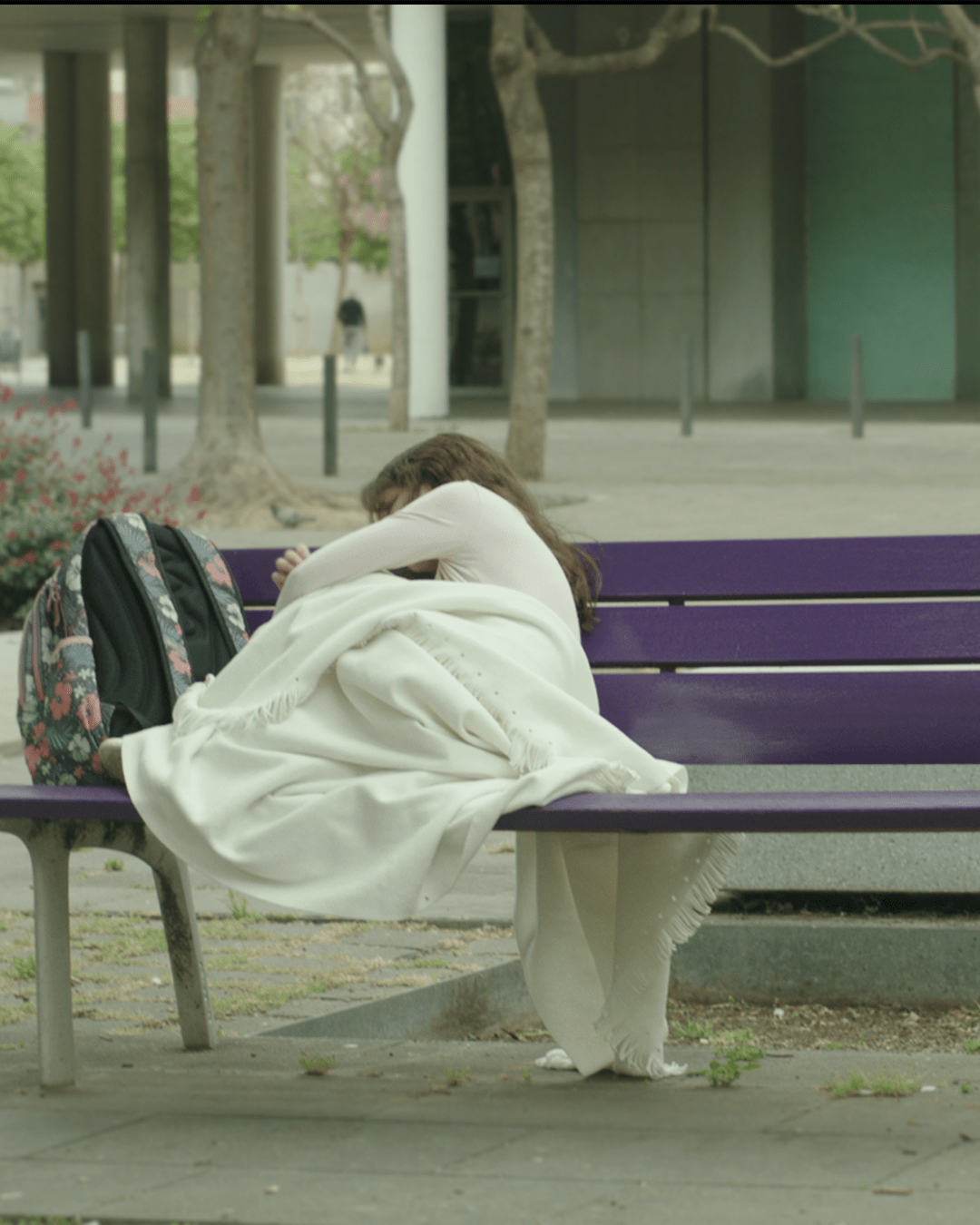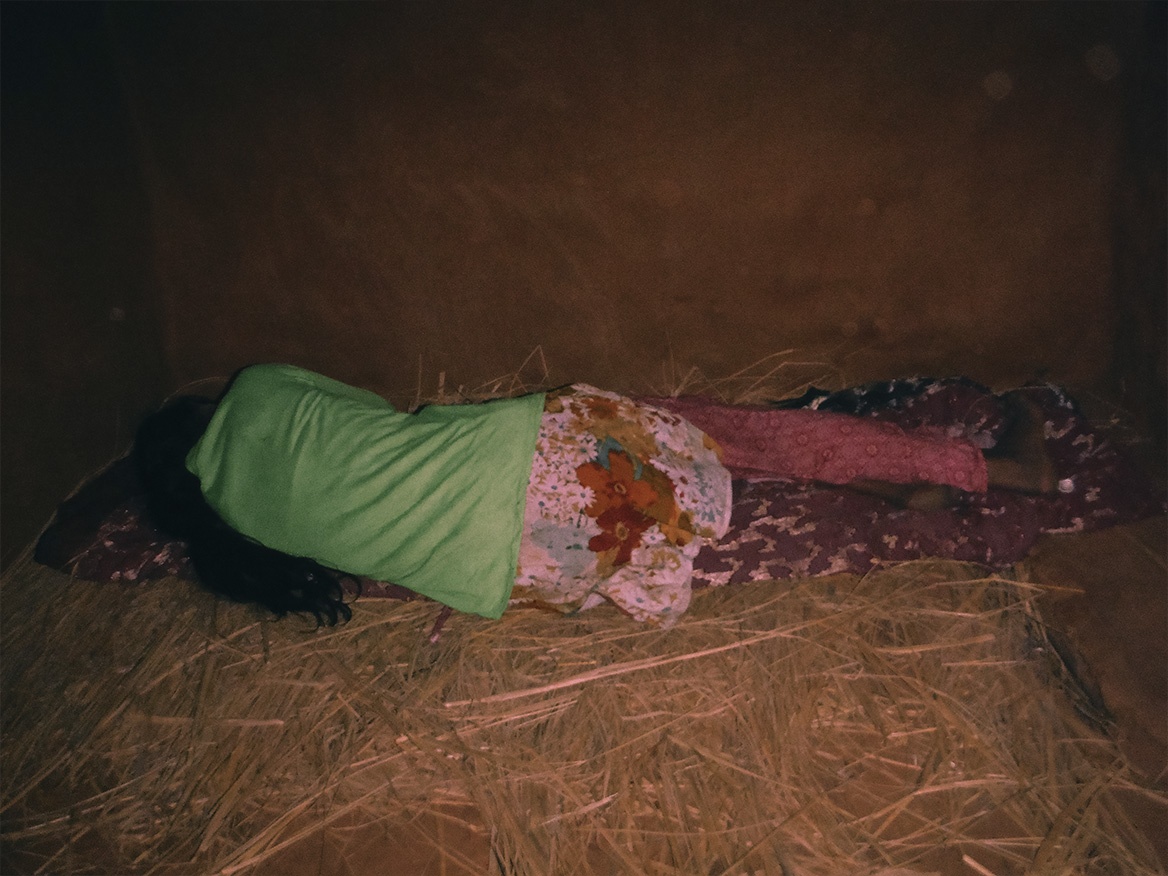In Nepal, 2 million women are banished every month
just for having their period. Many don’t survive.
A tradition still considers women impure during menstruation and forces them into isolation under inhumane conditions, endangering their health and dignity.
It’s called Chhaupadi
The menstruation that you and I experience as something completely normal
costs them their lives.
Having The Period Kills
Not all deaths are reported.
No one knows how many are raped.
Among the reported victims, the most notable cases include:
- Nim Khanal (28 years old) and Kabita Bhandari (7 years old) died on August 29, 2025, in the village of Serapani, Panchadewal Binayak Municipality 8 (Achham), when a large rock fell onto the half-collapsed chhaupadi hut where they were sleeping. The 7-year-old girl’s mother survived the disaster, but had to be hospitalized in Surkhet.
- Kamala Aauji (28 years Old): 12 July 2025, died after being bite by a snake while sleeping in a menstrual hut, she was raising 3 children alone, her husband is in India. Family members told initially said to be bitten at home, Police confirmed she was in a Chhaugoth due to Menstruation.
- Anita Chaud (16 years old): In August 2023, she was bitten by a venomous snake on a Tuesday night and died the next day while exiled in a Chhaupadi hut.
- Parbati Bogati (21 years old): Died on February 2, 2019, in Sanfebagar, Achham, from asphyxiation after lighting a fire inside her hut to keep warm.
- Parbati Budha (18 years old): Died in Thurmakhand while sleeping in a hut with her friend Radhika.
- Parbati Budha Rawat (21 years old): Died of asphyxiation after lighting a fire inside her stone and mud hut.
- Amba Bohara (35 years old) and her children (9 and 12 years old): Died of asphyxiation in a windowless hut while they were sleeping.
- Gauri Budha (22 years old): Married student of a police officer, died of asphyxiation in a hut.
- Roshani Tiruwa (15 years old): Died in December 2016; her mother escaped from the hut that same night and managed to save herself..
- Dambara Upadhyay: Died in November 2016; her family states that she refused to stay in the hut for fear of breaking traditional rules.
- Sarmila Bhul (15 years old): Died in Dailekh in 2013 while following this practice. No autopsy was performed due to lack of medical resources in the area.
What does CHHAUPADI mean for them?
They are forbidden to touch water and food.
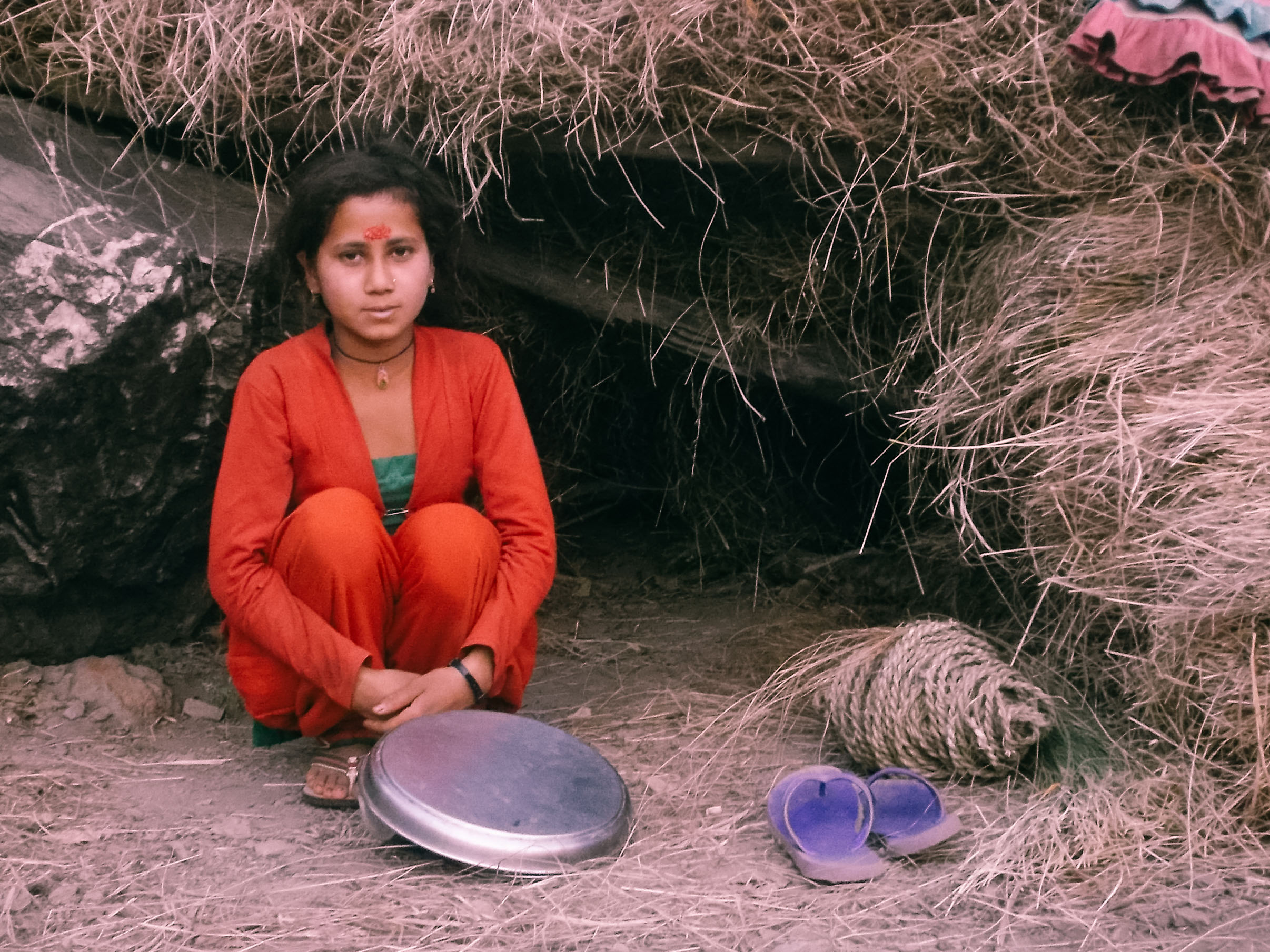
Women and girls are considered impure during their bleeding days, which affects everything they touch. They are not allowed to handle food, interact with other people, or touch the water sources that supply the village. This restriction forces them to seek alternative water sources several kilometers away or to wait for someone to bring them water in order to eat, drink, or wash.
They are exposed to various life-threatening dangers.
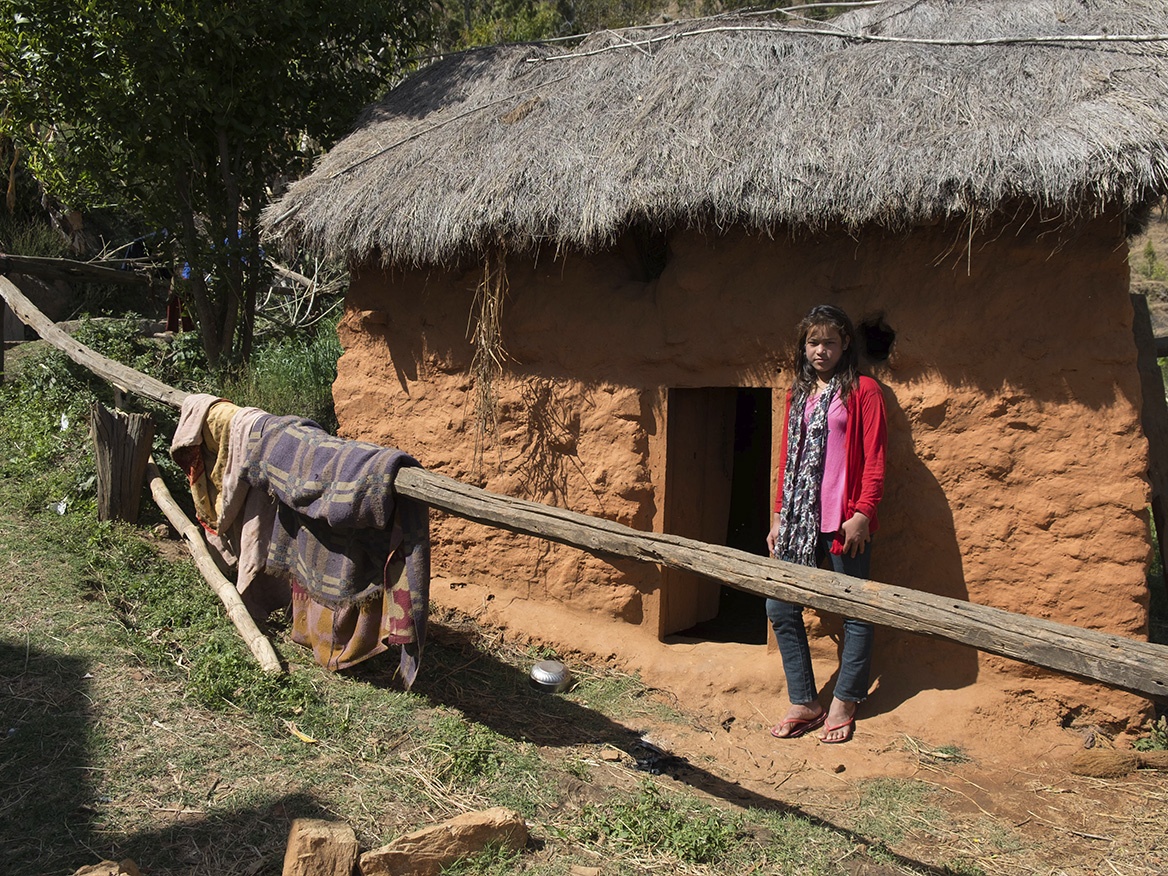
They have to wash everything they touch daily, including the blanket and mattress they use. Since it is difficult for these to dry during winter, they are exposed to the risk of dying from hypothermia during the nights. Those who light fires inside the huts to keep warm may die from asphyxiation. In contrast, during the summer, many die from snake bites or attacks by other local wild animals, such as tigers.
They live stigmatized and blamed.
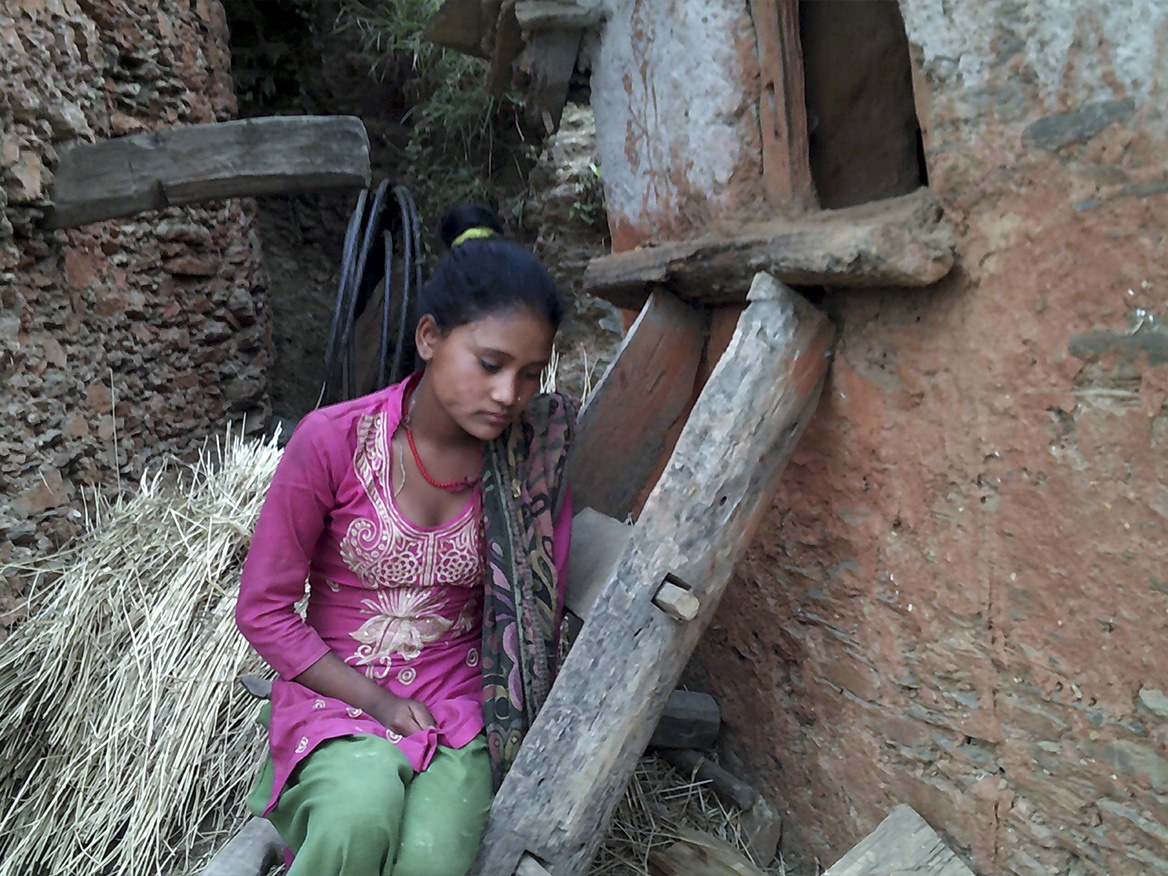
During their menstruation days, they are considered bearers of bad luck. So, if something bad happens in the village, the girl who has not followed the Chhaupadi tradition will be singled out and accused with phrases like: “It’s your fault for not following the tradition.” This social pressure weighs heavily on them, forcing them from a very young age to endure intense emotional burdens that hold them back from rebelling against the tradition.
What are we doing?
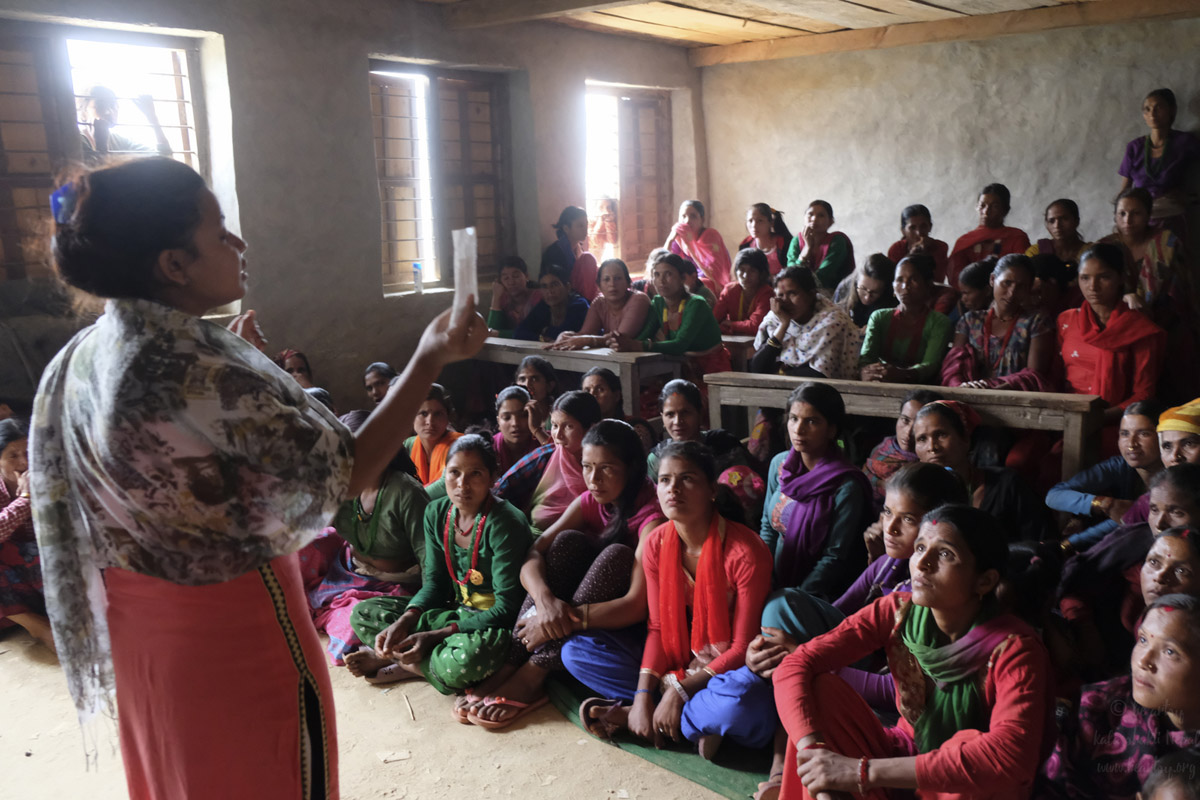
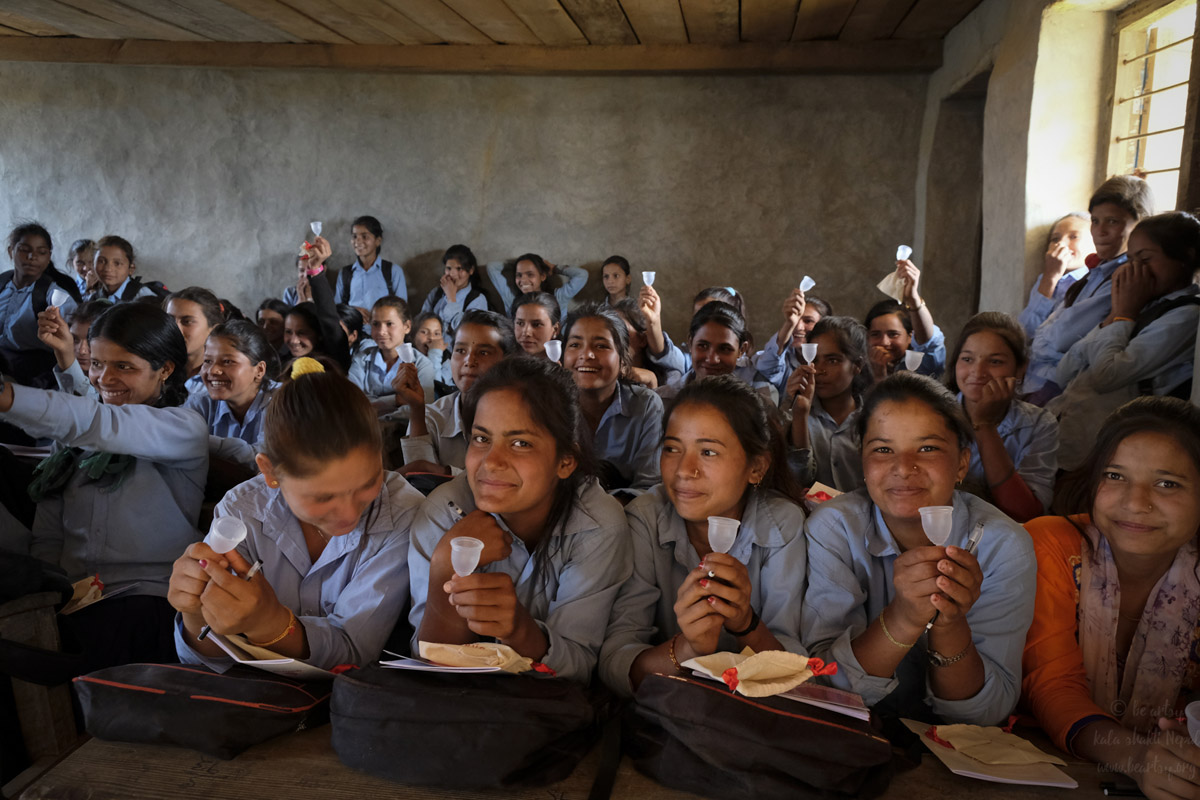
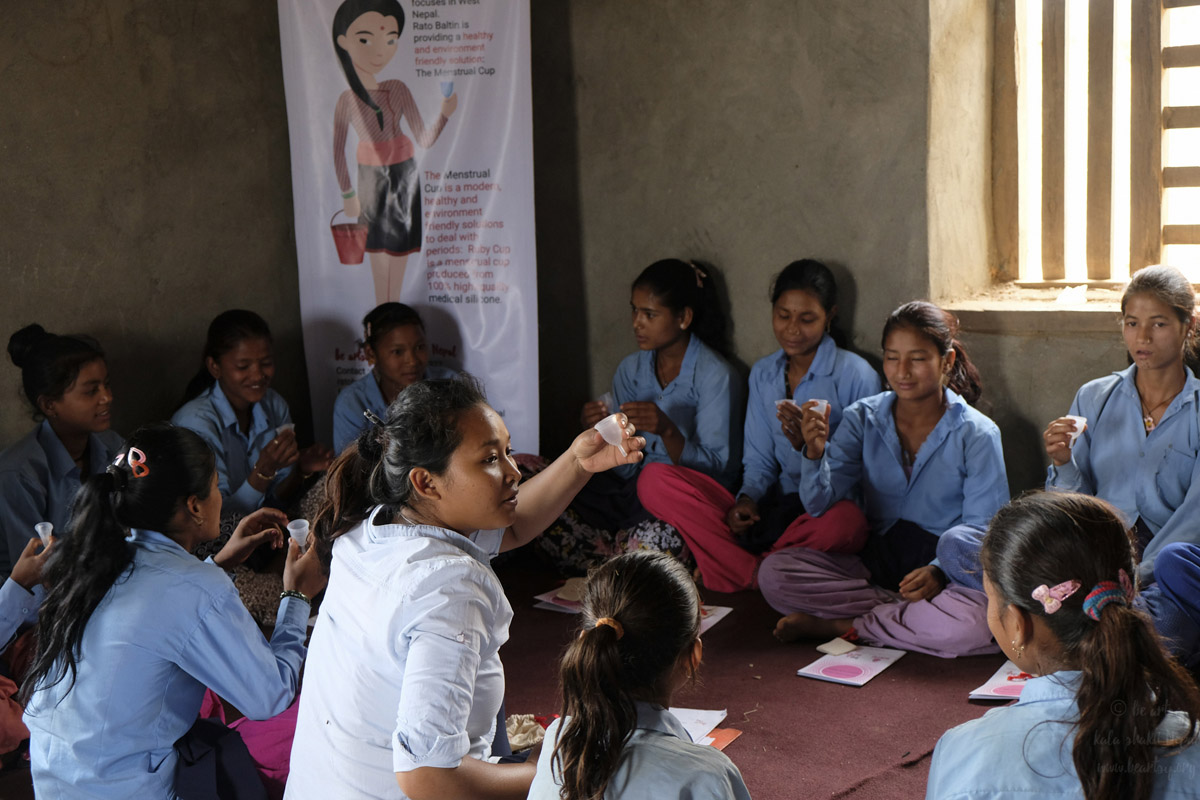
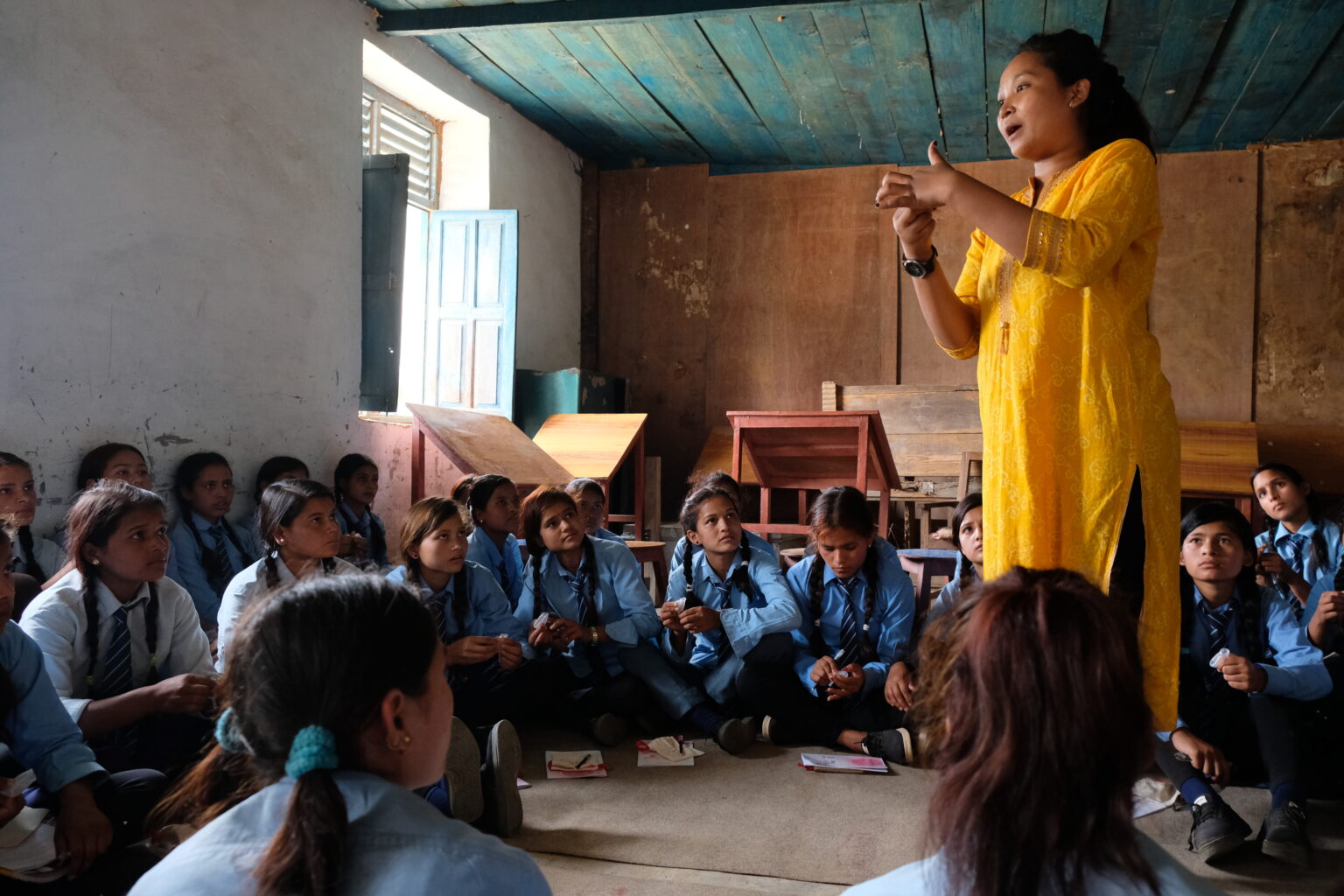
Rato Baltin is a field training project that has been operating since 2017. We have identified that the solution lies in helping people understand that menstruation and chhaupadi are different concepts, as the same term is often used to refer to both.
To encourage open conversations about such a “taboo” topic, we use participatory photography: we give them recovered cameras and ask them to photograph their experience of chhaupadi, their menstruation. The images they bring us become the starting point for dialogue.
Every girl and woman in the Rato Baltin program receives a menstrual cup (donated by the company Ruby Cup) and is trained in its use. They are also provided with soap and a metal bucket to ensure they can sterilize the cup with boiling water.
Thanks to the use of menstrual cups, the practice of chhaupadi has decreased in many families, which motivates us to continue working until it is completely eradicated.
Our results
5500
Menstrual cups distributed
80.500
People directly benefited
94%
They still use the cup one year later.
Who we are
The Rato Baltin project is part of the work carried out by the association be artsy, an NGO registered under number 60067 in the Registry of Associations of the Generalitat de Catalunya, declared of public utility, and recognized as an NGO for development (ONGD) by AECID.
be artsy is a non-profit organization founded in Barcelona in 2016 by Clara Garcia i Ortés, after personally witnessing the reality of chhaupadi during a trip to western Nepal. Her commitment to equal opportunities for women led her to dedicate herself from then on to improving the lives of women and girls in Nepal, using another of her passions: participatory photography.
Our structure is agile, with controlled fixed costs thanks to the remote work of our collaborators and the efforts of many volunteers worldwide who make management and marketing tasks possible. On the ground, we have a team of local trainers and mentors, hired to teach in the villages using their own language and culture. The funds raised have a direct impact on the projects we carry out in the field.
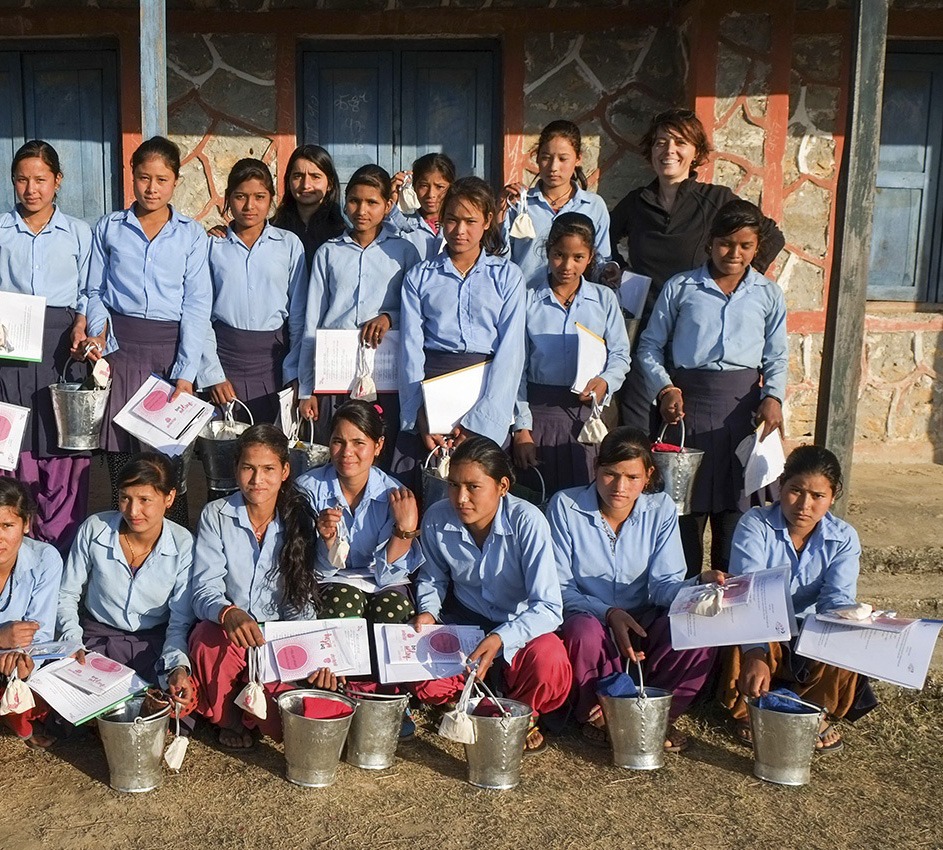
What can you do?
Make a donation
Private financial donations are an important part of funding our project. Every euro counts to deliver training and menstrual cups (donated by the company Ruby Cup) as quickly as possible to more girls and women in more villages in western Nepal.
A donation of €13 helps one girl leave these huts. If you also make your donation MONTHLY, you contribute to the stability of the project, allowing us to reach more territory, more women, and more girls. Please consider giving on a recurring basis!
If you are in Spain: Remember that these donations are tax-deductible in your 2025 Income Tax Return. The Tax Agency refunds 80% of the first €250 donated, which means that donating €250 will only cost you €50.
Join our community
Celebrate the progress with us, stay closely informed about new challenges, and read firsthand stories by subscribing to beartsy.org’s monthly newsletter.
Help us spread this campaign.
La Associació be artsy está inscrita con el nº 60067 en el Registro de Asociaciones de la Generalitat de Cataluña. Desde junio 2021 es declarada organización no gubernamental para el desarrollo (ONGD) por l’AECID y de utilidad pública. info@beartsy.org
Con la ayuda de:


